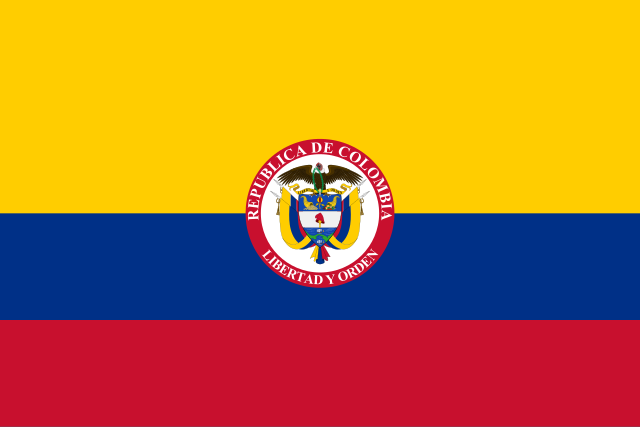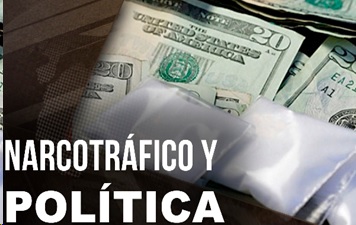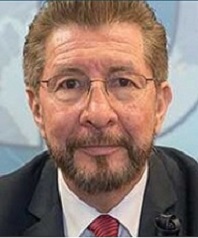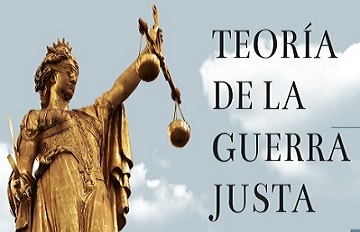
 No es que Colombia carezca de lideres. El problema es identificar quien de entre ellos reúne todos los requisitos para salvar a un país secuestrado por la corrupción y la narcoguerrilla. Un líder que, como en su momento Álvaro Uribe Vélez, asuma la responsabilidad con valentía y entereza. Alguien que haga lo que hay que hacer para tomar control de una nación que padece de politiculitis aguda.
No es que Colombia carezca de lideres. El problema es identificar quien de entre ellos reúne todos los requisitos para salvar a un país secuestrado por la corrupción y la narcoguerrilla. Un líder que, como en su momento Álvaro Uribe Vélez, asuma la responsabilidad con valentía y entereza. Alguien que haga lo que hay que hacer para tomar control de una nación que padece de politiculitis aguda.
El aspirante a la presidencia tendrá que enfrentarse a una miríada de partidos políticos y coaliciones en Colombia: Partido liberal; Partido Conservador; Pacto Histórico; Centro democrático; Cambio Radical; Alianza Verde; Partido de la U; Nuevo Liberalismo; y a movimientos como Dignidad y Compromiso; Salvación Nacional, Colombia Humana etc.
A pesar de la admiración y gratitud que la gran mayoría de los colombianos sienten por Uribe Vélez, muchos de los cuales volverían a elegirlo presidente, la preocupación se debe a su inicial apoyo a la presidencia de Juan Manuel Santos, quien traicionó los principios del Uribismo, entregando el país a los guerrilleros de las FARC y el M19.
Hasta ahora los pilares del CD han sido lideres como María Fernanda Cabal, Paloma Valencia, Miguel Uribe Turbay† y Miguel Polo que han mantenido en jaque los intentos de Gustavo Petro para destruir el país. Tras el asesinato de Uribe Turbay, el expresidente Uribe ha jugado una carta dudosa al elegir como precandidato, a Miguel Uribe Londoño, el padre del senador caído en la batalla.
¿Cuál sería el beneficio, aparte de captar el voto de los colombianos que lloran la muerte de su líder? En estos momentos el país necesita llenar la fórmula de un adalid fuerte con una plataforma coherente y objetiva para comenzar la tarea de erradicar la violencia y los daños del Pacto Histórico y demás derivados de la izquierda.
- Hits: 485

 In my view, what really holds a society together isn’t the laws enacted by legislatures or dictators, but peer pressure, social opprobrium, and moral approbation. Generally, society is fairly self-regulating. It’s why people pay their bills at restaurants even though there’s not a cop at the door. Criminals are the exception, not the rule—although, it must be said, they naturally gravitate towards the government.
In my view, what really holds a society together isn’t the laws enacted by legislatures or dictators, but peer pressure, social opprobrium, and moral approbation. Generally, society is fairly self-regulating. It’s why people pay their bills at restaurants even though there’s not a cop at the door. Criminals are the exception, not the rule—although, it must be said, they naturally gravitate towards the government.
 The basis of the fight that for decades the people subjected by 21st Century Socialism have fought is to separate crime from politics so that organized crime stops protecting itself in the sovereignty, representation, and immunities that are bestowed to Heads of State and democratic representatives. As a milestone for freedom, the United States has just identified Venezuela as a “country kidnapped by a criminal band” increasing the bounty for the capture of Nicolas Maduro to 50 million Dollars.
The basis of the fight that for decades the people subjected by 21st Century Socialism have fought is to separate crime from politics so that organized crime stops protecting itself in the sovereignty, representation, and immunities that are bestowed to Heads of State and democratic representatives. As a milestone for freedom, the United States has just identified Venezuela as a “country kidnapped by a criminal band” increasing the bounty for the capture of Nicolas Maduro to 50 million Dollars. La guerra era una realidad permanente, normal, en el mundo del Oriente Medio. Para Israel, hasta el tiempo de la monarquía y aún más allá, la guerra era siempre una guerra santa: eran las guerras de Yavé, el Señor (Éxodo 17: 16; Números 21: 14; 1 Samuel 25: 28. La presencia simbólica del Arca de la Alianza, en la opinión de algunos, comunicaba a los israelitas en pie de guerra que el Señor peleaba a su lado (1 Samuel 11:11).
La guerra era una realidad permanente, normal, en el mundo del Oriente Medio. Para Israel, hasta el tiempo de la monarquía y aún más allá, la guerra era siempre una guerra santa: eran las guerras de Yavé, el Señor (Éxodo 17: 16; Números 21: 14; 1 Samuel 25: 28. La presencia simbólica del Arca de la Alianza, en la opinión de algunos, comunicaba a los israelitas en pie de guerra que el Señor peleaba a su lado (1 Samuel 11:11).
